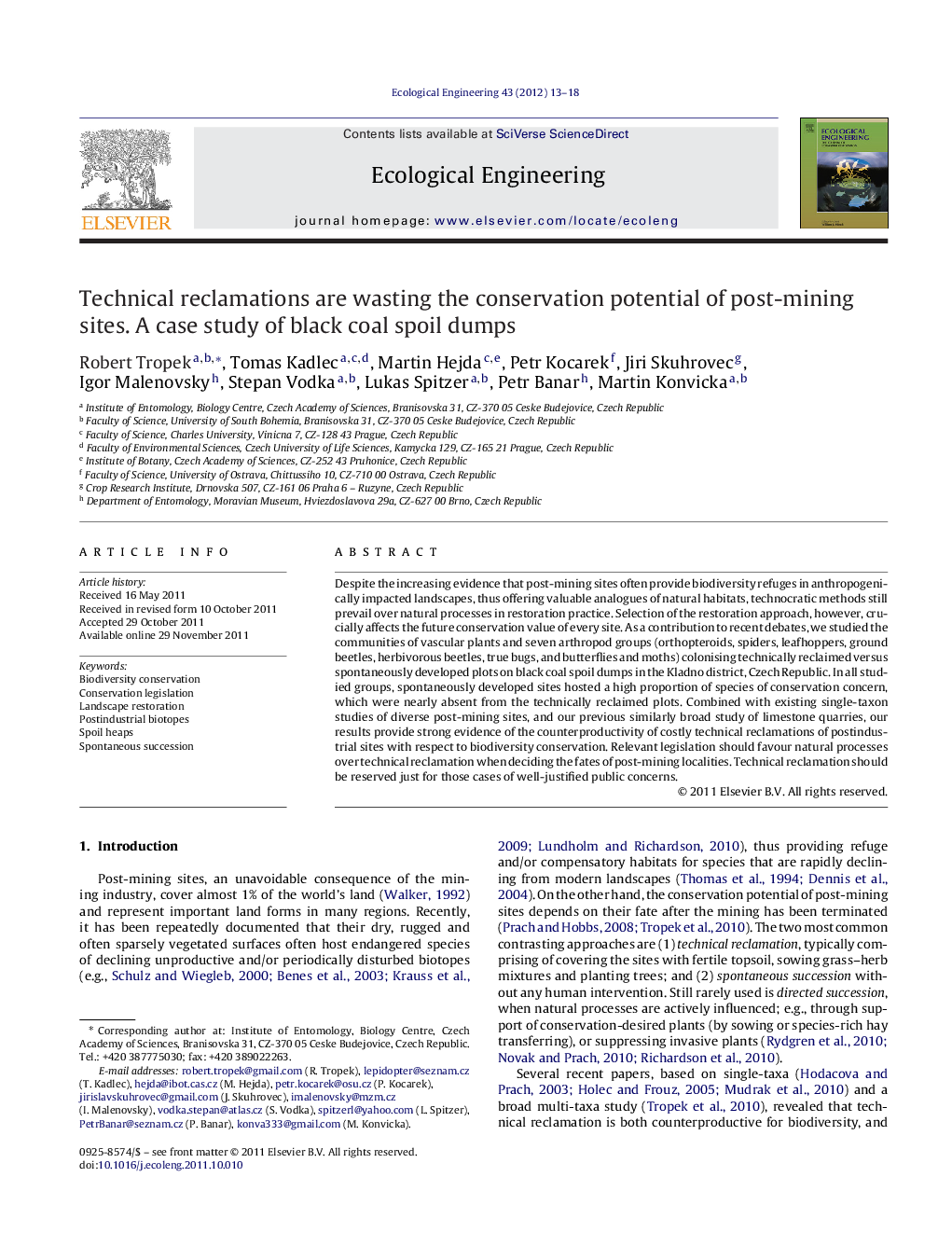| Article ID | Journal | Published Year | Pages | File Type |
|---|---|---|---|---|
| 4390056 | Ecological Engineering | 2012 | 6 Pages |
Despite the increasing evidence that post-mining sites often provide biodiversity refuges in anthropogenically impacted landscapes, thus offering valuable analogues of natural habitats, technocratic methods still prevail over natural processes in restoration practice. Selection of the restoration approach, however, crucially affects the future conservation value of every site. As a contribution to recent debates, we studied the communities of vascular plants and seven arthropod groups (orthopteroids, spiders, leafhoppers, ground beetles, herbivorous beetles, true bugs, and butterflies and moths) colonising technically reclaimed versus spontaneously developed plots on black coal spoil dumps in the Kladno district, Czech Republic. In all studied groups, spontaneously developed sites hosted a high proportion of species of conservation concern, which were nearly absent from the technically reclaimed plots. Combined with existing single-taxon studies of diverse post-mining sites, and our previous similarly broad study of limestone quarries, our results provide strong evidence of the counterproductivity of costly technical reclamations of postindustrial sites with respect to biodiversity conservation. Relevant legislation should favour natural processes over technical reclamation when deciding the fates of post-mining localities. Technical reclamation should be reserved just for those cases of well-justified public concerns.
Graphical abstractFigure optionsDownload full-size imageDownload as PowerPoint slideHighlights► Diverse arthropods and plants of reclaimed and non-reclaimed spoil dumps were studied. ► A high proportion of endangered species and natural grassland specialists was detected. ► The endangered and specialised species inclined towards non-reclaimed plots. ► The technical reclamation schemes are ineffective for biodiversity conservation.
